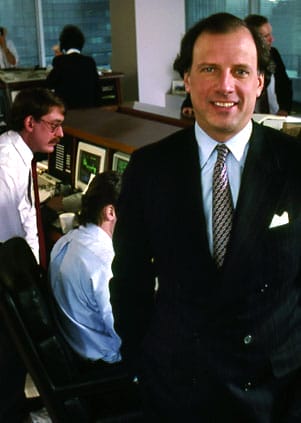 As the stock market was pressing higher and higher in the summer of 1987, Martin Zweig had a feeling enough was enough. In the hedge fund he ran and in the Zweig Forecast, the newsletter he wrote, he turned to put options, the market device that allows their owners to sell shares at a particular price—a bet that that price will be going down. In October, the market collapsed, and while the big averages lost a quarter of their value in one day, Zweig’s portfolio rose 8.7 percent and 50 percent for all of 1987. The former finance professor at Baruch College and Iona University was certified a stock genius.
As the stock market was pressing higher and higher in the summer of 1987, Martin Zweig had a feeling enough was enough. In the hedge fund he ran and in the Zweig Forecast, the newsletter he wrote, he turned to put options, the market device that allows their owners to sell shares at a particular price—a bet that that price will be going down. In October, the market collapsed, and while the big averages lost a quarter of their value in one day, Zweig’s portfolio rose 8.7 percent and 50 percent for all of 1987. The former finance professor at Baruch College and Iona University was certified a stock genius.
In truth, Zweig had already been, and would continue to be, a well-respected analyst and investor. He had started his newsletter in 1971 and his hedge fund in 1984, well before those limited high-end-investors became the rage. While still a professor, his by-word was, “Don’t fight the Fed.” That meant, according to Zweig’s theory, that if interest rates were going down, stocks would go up, and vice versa. He also claimed the way to make money was to be risk averse, rather than taking chances on the upside. He said he was a big poker player while at Wharton, but had stopped playing when he became a money manager because he hated losing, even at cards. One of his major pieces of advice was never to hold stocks, even of the best companies, in a bear market, since even they could disappoint.
He has also been a collector of pop culture items, including the sequined dress Marilyn Monroe wore to serenade “Happy Birthday” to President John F. Kennedy, the Hofner bass guitar played by Paul McCartney, and Jackie Robinson’s 1947 rookie Brooklyn Dodger jersey—the only one known to exist. Wharton’s Locust Walk lobby of Jon M. Huntsman Hall and the graduate lecture series are named in recognition of Zweig’s gifts to the School.

























